I'm developing a tool to analyse and give some statistics about other people's source code, the tool will be able to recognize many things in the code! Right now am stuck at counting the number of comments on the code, my current code is:
public static void main(String[] args) {
String line = "";
int count = 0;
try {
BufferedReader br = new BufferedReader(new FileReader("comments.txt"));
while ((line = br.readLine()) != null) {
if (line.startsWith("//")) {
count++;
} else if (line.startsWith("/*")) {
count++;
while (!(line = br.readLine()).endsWith("'*\'")) {
count++;
break;
}
}
}
br.close();
} catch (FileNotFoundException e) {
e.printStackTrace();
} catch (IOException e) {
e.printStackTrace();
}
System.out.println("count=" + count);
}
To check the code, I am using a test file. But the code is giving me the wrong result in both files, for example; I am getting three in the following file
Yes
//comment
yes
yes
/*
if
random
test
test
*/
While the answer should be two comments!
In the following file, it's showing me that I have five comments while I still actually have two
Yes
//comment
yes
yes
/*
if
random
test
test
/*
*/
